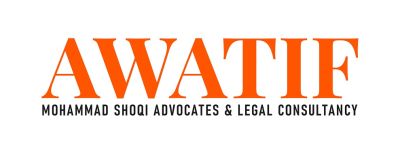Introduction: Intellectual Property Rights (IPR) serve as a cornerstone in the protection of creative expressions, technological advancements, and unique brands, fostering innovation and economic growth. In the United Arab Emirates (UAE), the legal framework for IPR encompasses Copyrights, Trademarks, and Patents, each playing a crucial role in safeguarding the rights of creators, inventors, and businesses. This article explores the key aspects of Copyrights, Trademarks, and Patents in the UAE, highlighting the importance of these protections and the mechanisms in place for their registration, enforcement, and penalties for violations.
Copyrights in the UAE
Copyright protection in the UAE is governed by Federal Decree-Law No. 38/2021, which grants protection to innovative literary, artistic, and scientific creations in any form, expression, significance, or purpose. The law establishes the Ministry of Economy's Department of Copyright as the central authority responsible for copyright registration. Key aspects of copyright protection in the UAE include:
- Definition of Trademark: The decree law defines a trademark as any sign or combination of signs capable of distinguishing goods or services of one entity from those of others. This encompasses names, words, signatures, symbols, numbers, colours, hologram marks, and three-dimensional marks, among others. Even distinctive sounds or smells may be considered trademarks.
- Exclusions from Trademark Registration: The UAE's decree law outlines several exclusions to trademark registration, such as marks lacking distinctiveness, breaching public morals, containing religious symbols, being identical or similar to well-known trademarks owned by others, and containing misleading or false information.
- Trademark Registration Process: The Ministry of Economy maintains the "Trademarks Register," where all trademarks, owners' details and related changes are recorded. The registration process is accessible to individuals and entities alike and allows applicants to cover multiple goods or services categories under a single application.
- Trademark Protection Period and Renewal: Upon successful registration, trademarks in the UAE are protected for ten years from the application filing date. The trademark owner can apply for renewal during the protection period and subsequent similar periods as per the Implementing Regulation.
- Cancellation and Disputes: Trademarks may be cancelled under certain circumstances, including non-use for five consecutive years or registration in violation of the law. Disputes related to trademark ownership, modification, or addition to the Register can be brought before the Competent Court or resolved through the Trademarks Grievances Committee.
- Assignment, Transfer, and Licensing: Trademark registration applications and registered trademarks can be assigned, transferred, mortgaged, or licensed to third parties or commercial projects, subject to registration in the Trademarks Register.
- Collective Trademarks, Control Marks, and Geographical Indications: The law also addresses collective trademarks, control marks, insignia of public interest, and geographical indications, providing specific conditions and controls for registration and use.
Patents in the UAE
Patent protection in the UAE is governed by Federal Law No. 11/2021, ensuring the protection and regulation of intellectual property rights related to inventions. Patents are crucial for inventors and businesses, granting exclusive rights to exploit innovative ideas commercially. Key aspects of patent protection in the UAE include:
- Patent Validity and Examination: To be eligible for patent protection in the UAE, an invention must undergo formal and substantive examinations. The formal examination ensures the patent application meets all requirements, and the substantive examination evaluates the invention's novelty, inventive step, and industrial applicability.
- Patentability Requirements: An invention is patentable in the UAE if it meets specific criteria, including novelty, inventive step, and industrial applicability. The law also outlines categories of inventions for which patents will not be granted, such as research on plant or animal species, diagnostic and surgical methods, scientific principles, and mathematical methods.
- Grounds for Invalidating a Patent: Patents may be invalidated if certain conditions are not met, such as non-fulfilment of legal conditions, lack of novelty, inventive step, or industrial applicability, or if the applicant is not the rightful owner of the patent.
- Patent Registration Process: The patent registration process involves submitting an application to the Ministry of Economy's Patent Office, paying the necessary fees, and complying with all requirements outlined in the Implementing Regulation.
- Rights and Duration: Patent holders in the UAE enjoy exclusive rights to exploit the invention commercially for twenty years from the application filing date. The owner can also apply for patent renewal during the protection period.
- Patent Licensing and Transfer: Patent owners have the right to license or transfer their patent rights to other individuals or entities, subject to registration in the Patent Register.
Conclusion: Intellectual Property Rights in the UAE encompass a comprehensive legal framework for the protection of creative works, trademarks, and inventions. Copyrights safeguard literary, artistic, and scientific creations, while trademarks distinguish goods and services of entities, building brand reputation. Patents offer exclusive rights for innovative inventions, fostering economic growth and technological advancements. The UAE's commitment to protecting intellectual property serves as a catalyst for creativity, innovation, and cultural diversity, benefiting creators and businesses alike.









